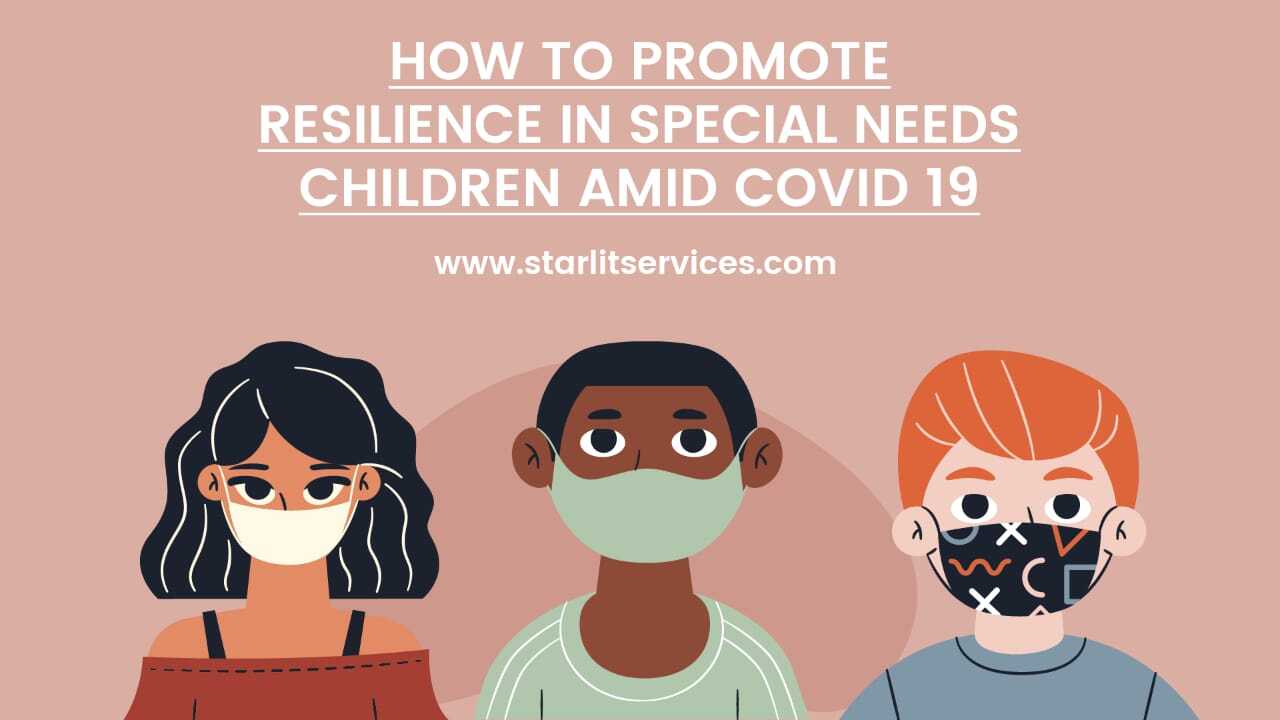“A child is embedded in interactions with friends, family, community. The way those other systems are functioning plays a huge role in the capacity of that child to overcome adversity.” says Ann S. Masten
Resilience Defined –
According to the American Psychological Association (APA), Resilience is “The process of adapting well in the face of adversity, trauma, tragedy, threats or even significant sources of stress”. Literally, the term Resilience means ‘to bounce back’ to normalcy or a healthy mental functioning after facing a significant stressor. A number of biological, psychological, social and cultural factors together forms the basis of resilience. The interplay of these factors determine how one responds to stressful experiences.
2020 has so far been the year of challenges. The world is hit by a pandemic, altering and significantly affecting the lives of many across the globe. Children, in these circumstances, are one of the most vulnerable populations to the social and emotional strain caused by the pandemic. Kids with neuro-developmental and genetic conditions are further at greater risk of marginalization. Home confinement, social isolation, child abuse and neglect, poverty, substance abuse, parental conflicts, disruption in receiving the necessary medical and special education services, adapting to the new lifestyle, changed method of schooling are just a couple challenges and uncertainties that special needs kids may be facing.
However, to give the bright side, years of research has stated that building resilience in children can help buffer the damage caused by these adversities. It can help children cope better with the long-term impact and flourish despite the hardships faced.
Factors fostering resilience in children include problem-solving ability, emotion regulation, self-control, self-efficacy, as well as supportive parenting, good peer relations, secure attachments with caregivers, effective schooling and qualities of faith and hope. Some of these are internal, some environmental and some are those that exist beyond immediate family and society.
But,
there is very little reliable data on the effectiveness or methods to build resilience in children with special needs. Researches primarily have focused on building resilient families or parents for special needs kids. This lack could be because in times of adversities, it becomes more important to first cater efficaciously to the basic biological, psychological and emotional needs of special needs kids. With regards to the current coronavirus pandemic, the prime focus of even special education teachers or therapists have been to help their special needs clients learn skills to manage their time or emotional / behaviour concerns well. (This is the general trend observed. There are exceptions, of course.)
However, inspite of the lack of documented outcomes of practicing resilience for children with special needs, particularly in pandemic situations, it is safe to say that promoting some protective factors in kids will help them in dealing better with the present circumstances and hopefully also in adjusting with their ‘back to school’ routines and future life.
Note:
‘Children with special needs’ is a broad term including kids with genetic and neuro-developmental, psychological and social concerns. The following ways must be taught to children taking into account their specific condition, severity of their concerns, age, abilities and the gauged effectiveness of developing resilience.
Ways to promote resilience in special needs kids:
Pre- requisites:
a) Needs of safety and security are met –
In developing ages, the need of proximity with parents or primary caregivers is naturally high. With the heightened uncertainty around, sensitive and responsive parenting becomes a very strong protective factor, especially for children with special needs. Research also confirms that the presence of a caring adult is one of the primary factors that aids in recovery of children who have suffered trauma. Given the need of social isolation, parents and caregivers have an added responsibility of providing the child with the social interaction that they are thus missing on.
Besides, encouraging children to participate in any cultural or religious practices that they find a sense of security from will be very helpful in their optimal development amid the pandemic. If you think this would work, maybe the family or parents can make it a routine to do so together. This would definitely help the child feel secure.
(Important – this is only helpful until it gives some meaning and a sense of security to the child. Refrain from forcing the child into anything.)
b) Normal family routines restored –
Yet another way of feeling safe and cared for at home. Ensure that the regular family routines remain unchanged as much as possible. Try to keep Lunch times, bed times etc. the same as they were. Most special needs kids are sensitive to change. Thus,it is a good practice to have a routine set for the day. Already they have adjusted in with a lot of changes over the months; keeping the rest of the home routines intact will help give them a sense of familiarity. Try to maintain a near-similar home schedule as was before.
1. Promote self–efficacy –
Self – efficacy is a sense of confidence one has in his / her own abilities to solve a problem or manage a situation. In the current situation, it can be defined as a belief in individuals (oneself) and families that they can and will recover or get better. This sense of trust in one’s capacity to do a task gives kids the idea that they can get through the situation and find an answer.
It is a usual suggestion that parents must let their children handle situations and problems by themselves. This practice may help develop confidence, as is said. However, as parents or caregivers of children with special needs, we tend to be protective of our kids. While this is not incorrect on your part, it is good to find a middle way and striking a balance between providing protection and the freedom to learn and grow.

What caregivers can do –
~ Provide opportunities that highlight their feeling of mastery – You know your kids the best. You are aware of their abilities and skills. Try to offer them some challenging tasks which they may have to try and solve. Tasks matched to their capabilities but yet challenging.
Example – If the child learning to write lower case alphabets and knows how to write a and b, you can practice writing ‘a’ and ‘b’ and then ask him to trace the alphabet ‘c’ over dotted lines.
A simple, seemingly easy task, but if the child can do this with minimal prompts and seems triumphant after, you have reached your goal!
~ Giving Children choices – to decide for themselves what they wish to do. This gives them the idea that they get to control and choose for themselves.
For instance, you can make a schedule of activities you wish to do for the day (more like a school time table). Then, have the child write ‘now’ or ‘later’ against them. This way, they have the choice of deciding what they wish to do first and also follow your schedule of activities.
~ Positive praise – Appreciation gives us an assurance that we actually performed well and that our significant others liked it. For kids, praise is extremely vital. It could just be a verbal ‘Very good!’ but you must praise your child for every little thing they do right. And even if they go wrong or fail, make sure you praise their efforts or their approach.
2. Promote a sense of hope and optimism –
Being hopeful and optimistic will work in your favor in any stressful condition. It motivates us to keep trying and definitely helps in fostering resilience in special needs children. While special needs kids may not readily understand the meaning and importance of hope or optimism, here are some simple habits to help inculcate a positive outlook in them.

What caregivers can do –
~ Focus on the positives – Give an alternative, positive perspective of every situation to your kids. For example, if your child is upset about not getting to play with his/her friends, you can say, “Well that would have been fun! But since daddy is home, do you want to finish the puzzle that you had been working on together?”
Besides, simpler bed time rituals like ‘What made me smile today?’ or maybe a gratitude journal (For older kids)
~ Teaching kids to reframe negative self-talk / statements – Instead of “I can never get this”, encourage your child to rather say “I will try again tomorrow”. This can be taught in multipe ways. For example – simple growth mindset worksheets
~ Model optimism for them – Kids are great observers. When they see their parent or caregiver forgive themselves for mistakes or looking at the brighter side of things, they learn the same.
3. Foster social connectedness –
Though physical contact may be limited, do not let social isolation turn into emotional distancing. Try to connect your child with his/ her peers or extended family members over video chat or telephone. Help your child connect to others through common hobbies. You may, for example, have your child interested in joining online group activities which are engaging and rewarding. A sense that others are there for me would help in promoting resilience in special needs children.
Additionally, try and continue the medical or special education services or ongoing therapies that the child was a part of.
4. Emotional support for kids –
One good strategy suggested by Bartlett and Vivrette (April, 2020) is to provide emotional support to children in this pandemic situation is to use the 3 Rs:
Reassurance – Reassuring kids of their safety and the safety of those around them.
For example, if your child is anxious of a family member going out for work, you can explain him / her about the precautionary measures they have been taking. Physical acts of reassurance like a gentle hug along with verbal communications helps the best.
Routines – As also mentioned above, maintaining a set home routine of sleeping, eating, schooling etc. helps in having some predictability and thus a sense of control.
Regulation – Helping children learn ways to regulate their feelings. For example, simple breathing techniques, physical movement or ‘alone time’. Also, encourage them to talk about how they feel or ask questions, if there are any. Equipping children with simple, age- appropriate ways to handle their anxiety, worry, boredom, uncertainty etc.
5. Support for caregiver well-being –
You are as effective a parent as you are living effectively yourself. Caregiver’s well-being is very strongly related to sensitive care giving by them. Thus, checking on your mental health becomes more important to help your child with special needs surf through this pandemic. Whenever possible, give yourself some free time. Practicing self- care routines or taking a break from work or care giving can help. Feel free to ask other family members or friends to help with some of your responsibilities. Lastly, if you feel like the situation has persisted on too long and you cannot take it all by yourself anymore, seek professional help. Most counselors and therapists have now been providing their services online. Remember that you alone cannot take care of everything.
We, at Starlit services, provide shadow teaching, remedial and comprehensive education services to children with special needs. To know ore about our services, visit https://www.starlitservices.com/

